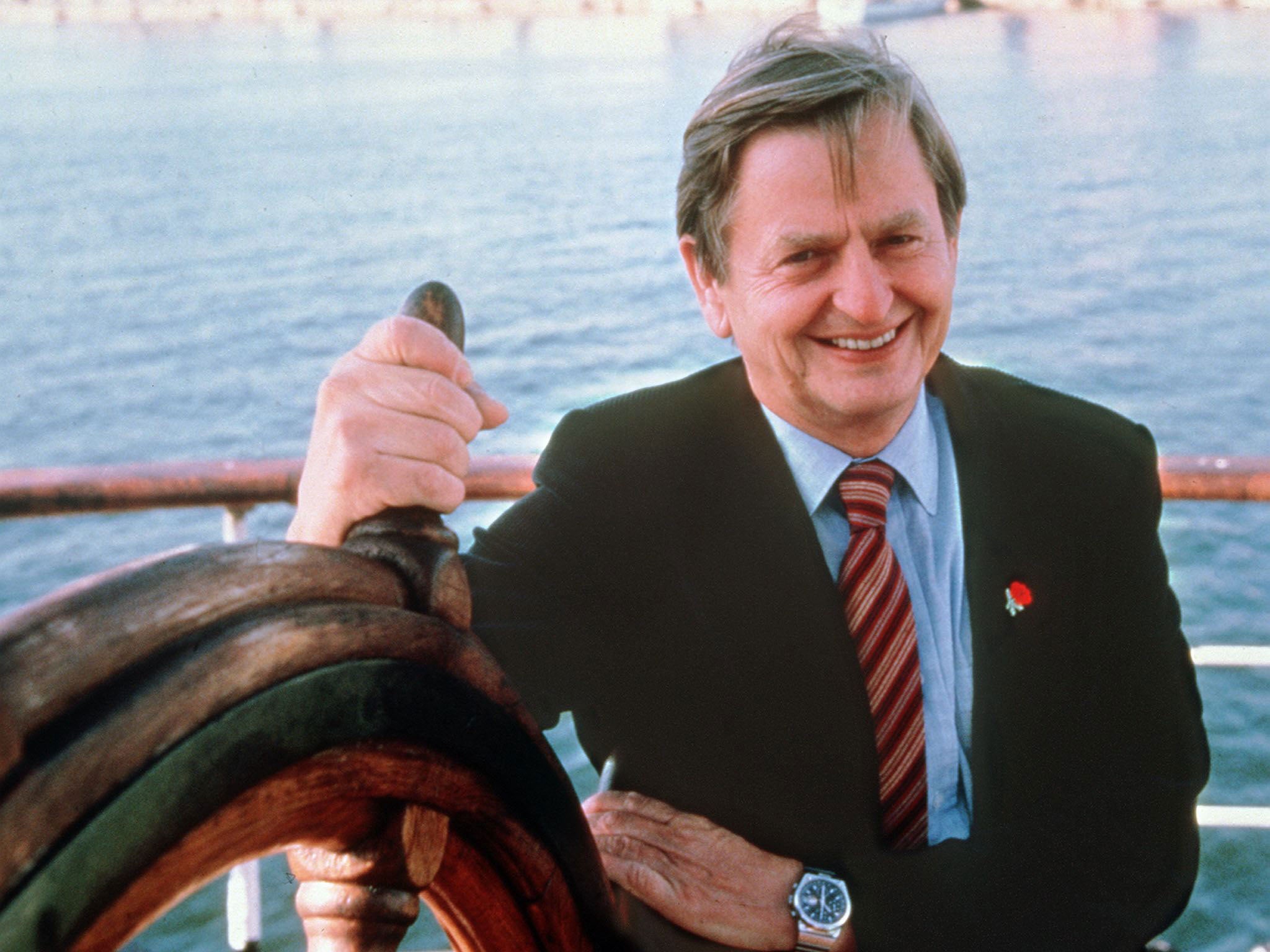Stieg Larsson 'sent Swedish police papers linking Olof Palme's death to South Africa'
Many conspiracy theories surround the former Prime Minister's shooting on a Stockholm street in 1986

Your support helps us to tell the story
From reproductive rights to climate change to Big Tech, The Independent is on the ground when the story is developing. Whether it's investigating the financials of Elon Musk's pro-Trump PAC or producing our latest documentary, 'The A Word', which shines a light on the American women fighting for reproductive rights, we know how important it is to parse out the facts from the messaging.
At such a critical moment in US history, we need reporters on the ground. Your donation allows us to keep sending journalists to speak to both sides of the story.
The Independent is trusted by Americans across the entire political spectrum. And unlike many other quality news outlets, we choose not to lock Americans out of our reporting and analysis with paywalls. We believe quality journalism should be available to everyone, paid for by those who can afford it.
Your support makes all the difference.Allegations that the bestselling Swedish crime novelist Stieg Larsson sent police evidence linking the murder of Prime Minister Olof Palme in 1986 to South African security services, have been intensified by a Swedish newspaper.
Svenska Dagbladet reported on Tuesday that the author of The Girl with the Dragon Tattoo sent police 15 boxes of papers that he said linked Mr Palme's shooting to a Swedish former military officer alleged to have links to South African security services.
Books by Mr Larsson, who died of a heart attack in 2004aged 50, have sold more than 75 million copies in 50 countries.
The Girl with the Dragon Tattoo was made into a Hollywood film with Daniel Craig and Rooney Mara in 2011. Its two sequels The Girl Who Played with Fire and The Girl Who Kicked The Hornets' Nest, were also global bestsellers.
Mr Palme was shot as he walked along a street in central Stockholm late on 28 February, after going to the cinema with his wife.
A vocal critic of the apartheid regime in South Africa at the time, Mr Parlme’s killing has spawned many conspiracy theories.
A petty criminal was found guilty of the crime in 1989, but was released later that year on appeal and the police were widely accused of bungling the investigation.
Bertil Wedin, who was suspected by Mr Larsson, denied being involved and told Svenska Dagbladet: "I have nothing to lose from the truth being established since I am luckily not the murderer."
Deputy Prosecutor-General Kerstin Skarp, who leads the continuing police inquiry into the killing, told the newspaper that Mr Wedin "is not someone that we are pursuing with any intensity at the moment".
Mr Wedin's name is not new to the investigation and was broached already in the 1990s amid intense media coverage of an alleged South African connection in the case.
Many private investigations, including Larsson's, have been launched into the case.
In fact, there are so many probes by ordinary Swedes that they are now called "privatspanare", or private scouts.
Some claimed to have cracked the case with theories ranging from his death being a carefully enacted suicide, to it being the work of foreign spy agencies.
Others blame Sweden's own security services, to Kurdish separatists and the South African and Yugoslav secret police.
Mr Palme, the Social Democrat Prime Minister between 1969 and 1976 and again between 1982 and 1986, was criticsed for his anti-colonial views and criticism of the US. Some even believed he was a spy for the KGB.
Additional reporting by Reuters
Join our commenting forum
Join thought-provoking conversations, follow other Independent readers and see their replies
Comments